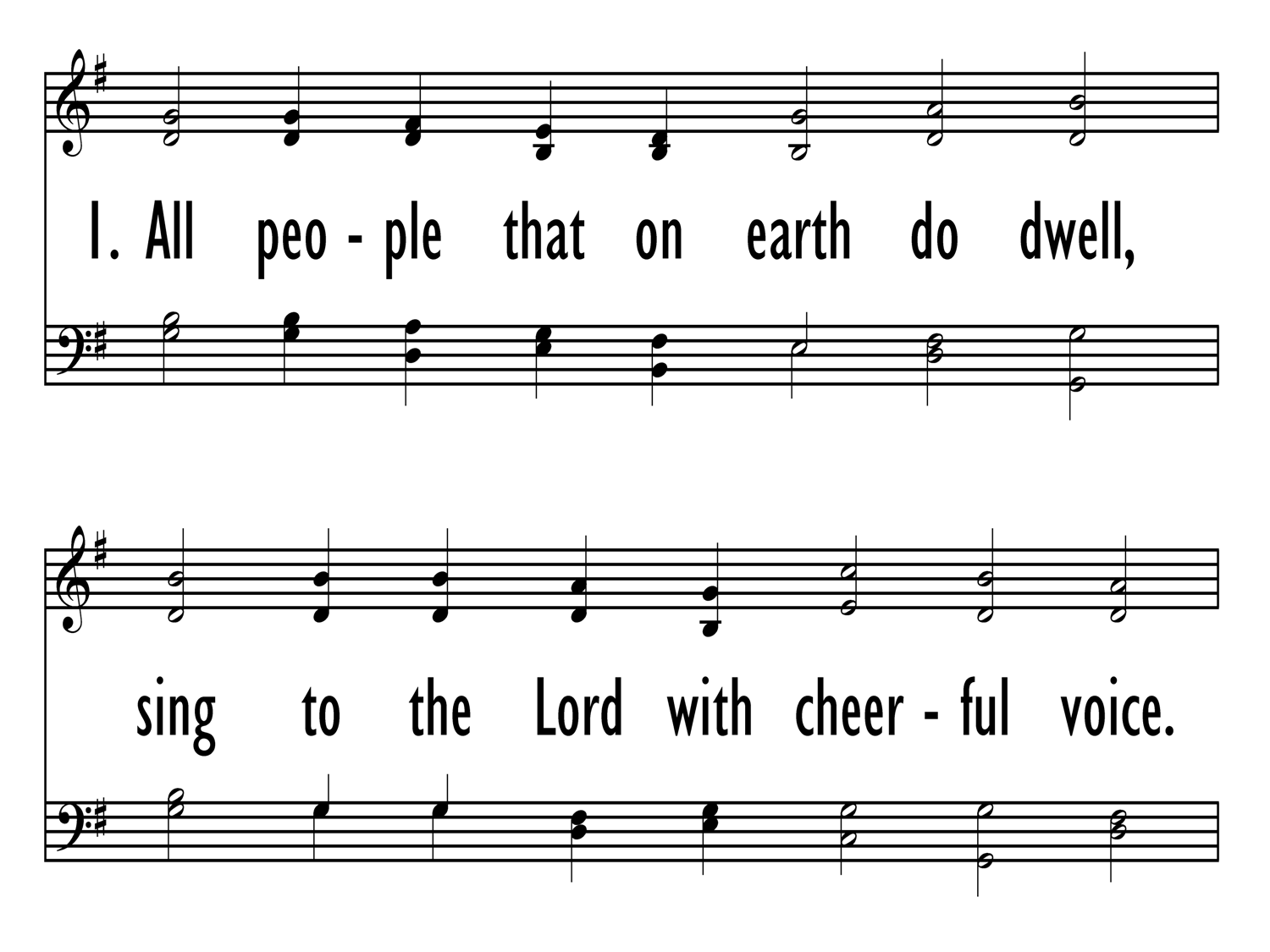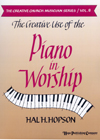- |
User Links
All People That on Earth Do Dwell
Hymn Information
- First Line
- All people that on earth do dwell (Vous, qui sur la terre habitez) (Juicht Gode toe) (E földön ti minden népek) (Nun jauchzt dem Herren) (Hai bumi) (Oh pueblos todos alabad) (Enyi mkaao nchi) (العظيمالساميلربنابالسرورغنيضرا) (普天之下萬族萬邦) (地はみな声あげ)(온땅의모든사람들)
- Author
- William Kethe (1561, alt.)
- Adapter (French translation)
- Roger Chapal (1970)
- Translator (French)
- Théodore de Bèze (1562)
- Translator (Chinese)
- Timothy Ting Fang Lew
- Reviser (Chinese translation)
- Ernest Yang
- Translator (Dutch)
- Willem Barnard (1967)
- Translator (German)
- Cornelius Becker (alt.)
- Translator (Hungarian)
- Albert Szenczi Molnár (1607)
- Translator (Indonesian)
- H. A. Pandopo
- Translator (Spanish)
- Federico J. Pagura (1960)
- Translator (Arabic)
- Anne Zaki
- Text Source
- Japanese translation: <cite>The 150 Genevan Psalm Songs in Japanese</cite> (The General Assembly of Reformed Church in Japan Publishing Committee, 2006) · Korean translation: <cite>The United Methodist Korean Hymnal Committee</cite> · Swahili translation: <cite>Nyimbo Standard</cite>
- Tune Name
- GENEVAN 134/OLD HUNDREDTH
- Composer
- Louis Bourgeois (1551, P.D.)
- Alternate Tune
- Genevan 100
- Topic
- Creation and Providence · Creation · God's: Goodness · God's: Mercy · God's: Name · God's: Presence · God's: Providence · God's: Truth · Music and Singing · Praise of God · Elements of Worship: Opening of Worship: Called And Gathered
Copyright Information
- Text Copyright
- French translation © Fédération Musique et Chant de la Réforme, c/o Editions Olivétan · Chinese translation © Chinese Christian Literature Council Ltd · Dutch translation © Interkerkelijke Stichting voor het Kerklied, Leidschendam · Indonesian translation © 1989 Yamuger, Indonesian Institute for Sacred Music · Korean translation © 2001 The United Methodist Publishing House, admin. The Copyright Company; · Spanish translation © Federico J. Pagura · Arabic translation © 2012 Faith Alive Christian Resources · English text Public Domain · German translation - Public Domain · Japanese translation - Public Domain
- Tune Copyright
- Public Domain
- Reprint/Projection Information
- Words (English): The Words are in the Public Domain; you do not need permission to project or reprint the Words.
- Words (Chinese): Please contact the copyright holder for permission.
- Words (Dutch): Please contact the copyright holder for permission.
- Words (Indonesian): Please contact the copyright holder for permission.
- Words (Korean): Please contact the copyright holder for permission.
- Words (Arabic):Permitted with a license from CCLI.com or from OneLicense.net. If you do not own this license, please contact the copyright holder for permission.
- Music: The Words are in the Public Domain; you do not need permission to project or reprint the Words.
Scripture References
Quoted or directly alluded to:
- st. 1 =
- st. 2 =
- st. 3 =
- st. 4 =
Further Reflections on Scripture References
Psalm 100 brings to a close a collection of psalms that celebrate the LORD's righteous rule over all creation (93, 95-99). Like the others, it was composed to be sung by the Levites at a high religious festival that annually celebrated the LORD's kingship over the entire world (perhaps the Feast of Tabernacles). Psalm 100 is the Hebrew equivalent of a cheerleader's shout–a strong call to worship the LORD with joyful song (st. 1, 3): the LORD is the one true God who made us to be "the sheep of his pasture" (st. 2), and God's love and faithfulness never fail (st. 4).
Confessions and Statements of Faith References
Further Reflections on Confessions and Statements of Faith References
The truths of Genesis, that “he (God) formed us without our aid” resounds in stanza 2 and is paralleled in Heidelberg Catechism, Lord’s Day 9, Question and Answer 26, Belgic Confession, Article 12; and Our World Belongs to God, paragraph 8, which states that God the Father created the world “out of nothing.”
Stanza 4 speaks of the nature of God as goodness, mercy and faithfulness; this list is enlarged in Belgic Confession, Article 1: God is “eternal, incomprehensible, invisible, unchangeable, infinite, almighty; completely wise, just and good, and the overflowing source of all good.”
All People That on Earth Do Dwell
Call to Worship
Words of Praise
Confession
Additional Prayers
By your power at work within us, may we cheerfully proclaim your goodness,
selflessly show your love, and joyfully come into your presence.
You are our God. We are your people, now and always.
Hallelujah! Amen.
Let English and French tongues praise him.
Let Swahili and Arabic tongues praise him.
Let all people on earth praise him in Jesus’ name. Amen.
All People That on Earth Do Dwell
Tune Information
- Name
- GENEVAN 134/OLD HUNDREDTH
- Key
- G Major
- Meter
- 8.8.8.8.
- Alternate Tune
- Genevan 100


 My Starred Hymns
My Starred Hymns







